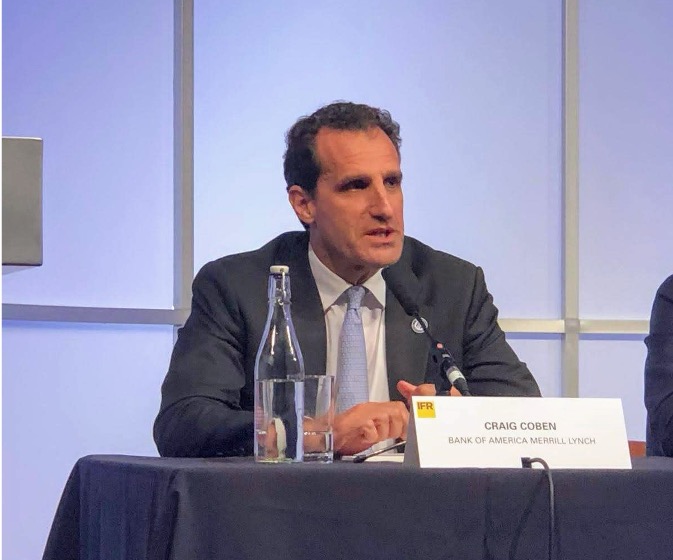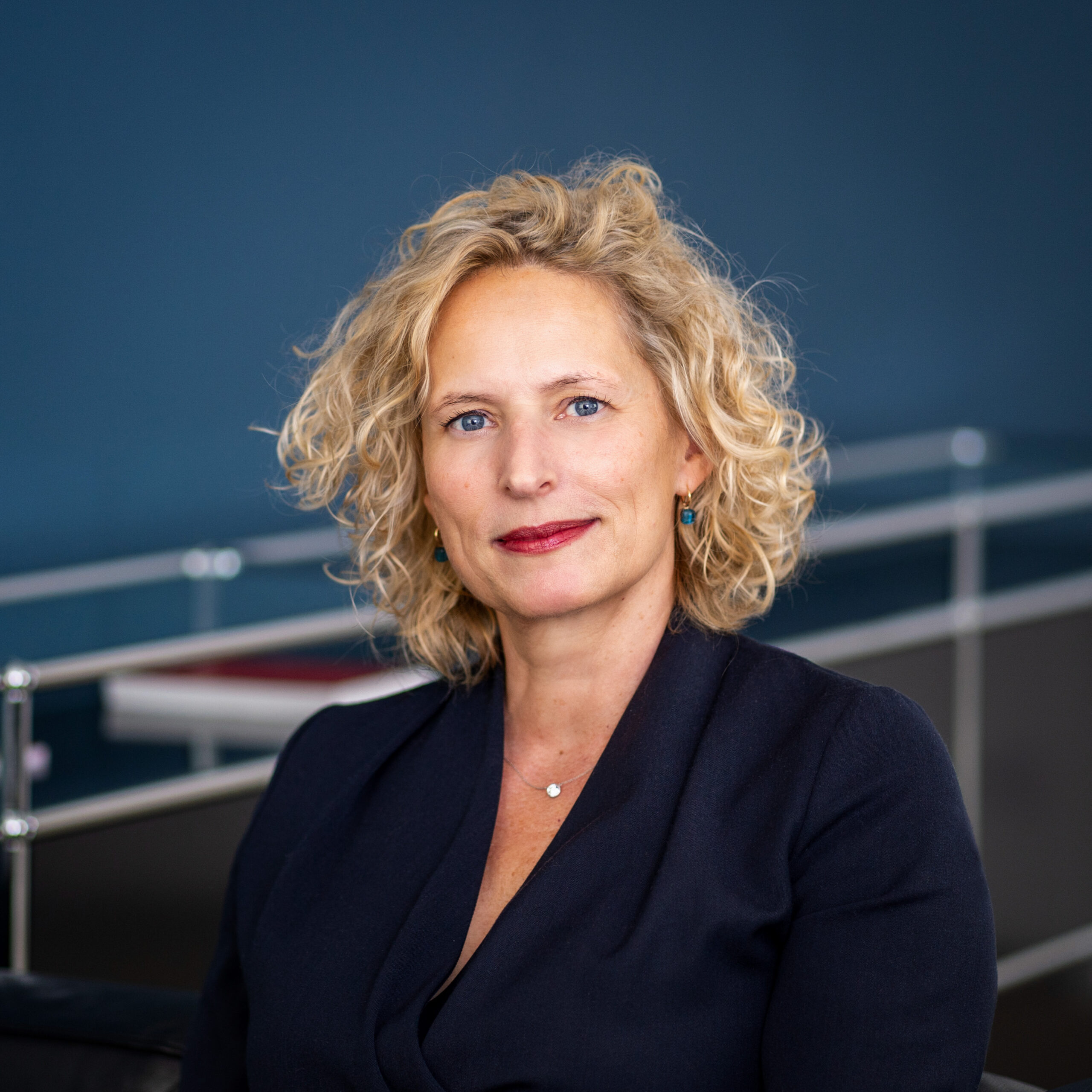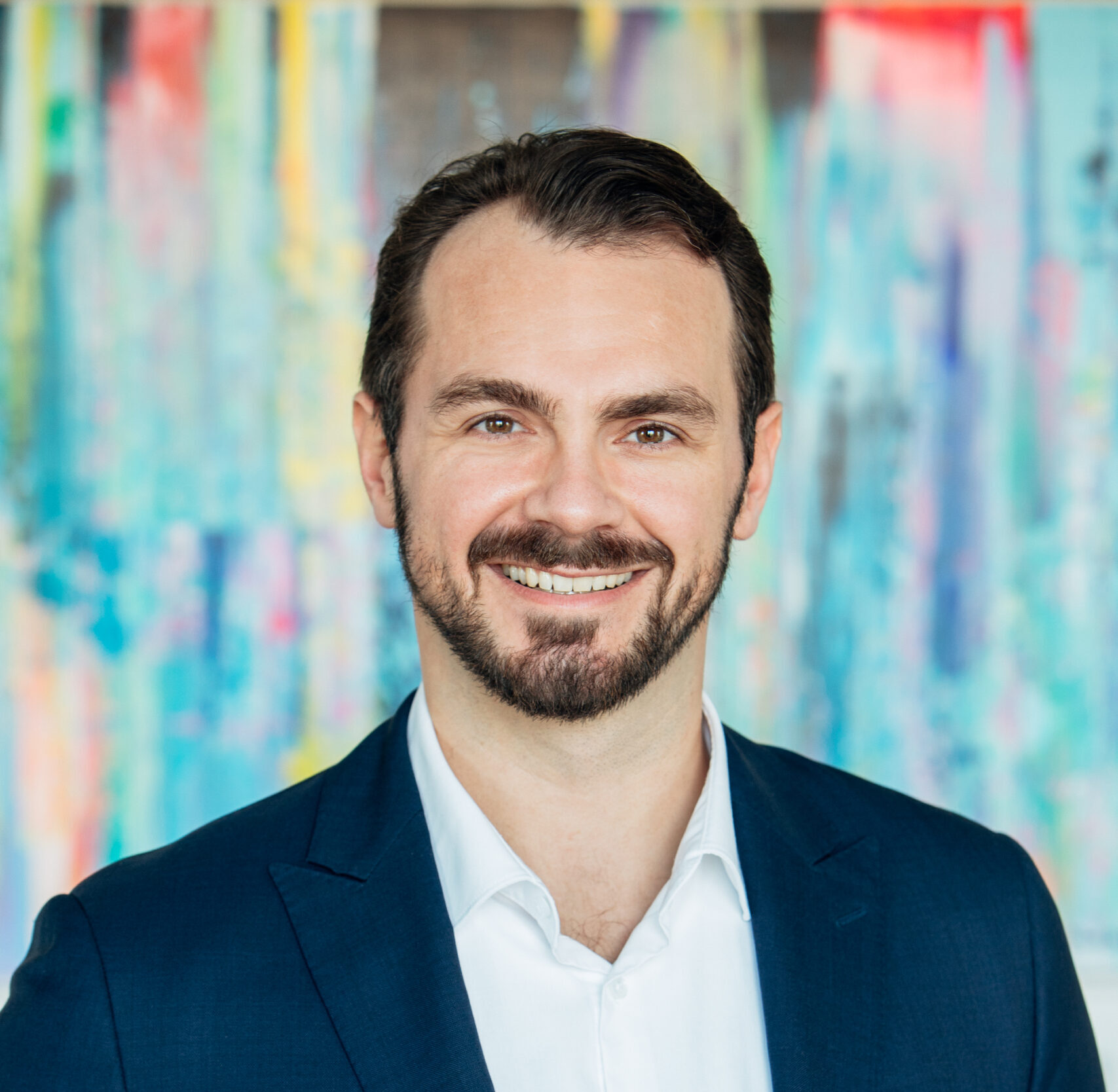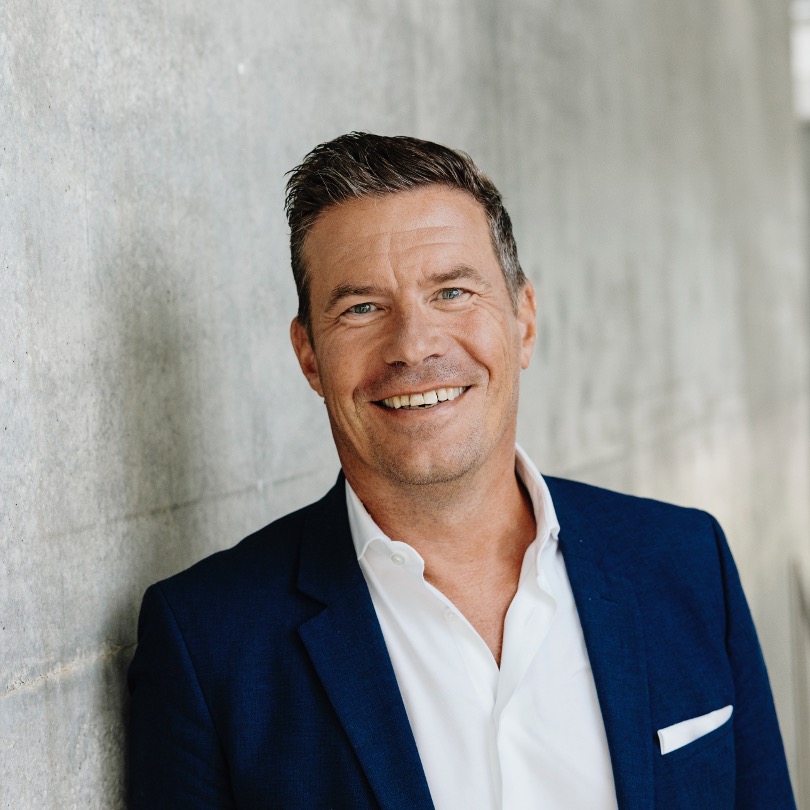Mr. Coben, could please give our readers a brief overview of your career in your own words.
I’m American and received my education in the United States. I never really expected to go into finance; I did my undergraduate studies at Yale and studied law at Harvard. After completing my legal studies, I spent a year clerking for a judge in Washington, D.C. From there, I joined Sullivan & Cromwell, a Wall Street law firm, where I worked for two years in New York and one year in London, primarily focusing on securities law.
In New York, I had been asked to work on several Latin American projects because I spoke Spanish and could get by in Portuguese. Then I was sent to London to assist with Italian work, because I also spoke Italian. In total, I spent three years at Sullivan & Cromwell.
Then, at the ripe old age of 30, on exactly my 30th birthday, I was extended an offer to join Deutsche Bank. This was in late 1996, and at the time, it was known as Deutsche Morgan Grenfell, as Deutsche Bank had acquired the UK merchant bank Morgan Grenfell a few years earlier. So, in January 1997, I became part of the equity capital markets team at Deutsche Bank, where I became Managing Director in early 2002. In total, I spent eight and a half years at Deutsche Bank.
Then, in mid-2005, I received an offer from Merrill Lynch, and I spent the rest of my career effectively there. You may recall that in 2008, Bank of America and Merrill Lynch merged during the financial crisis. It was something of a shotgun wedding against the backdrop of dislocated markets, but I stayed through it all until 2022.
While at Merrill Lynch (and later Bank of America), I led the EMEA equity capital markets team from 2009 to 2016, and I was Global Head of Equity Capital Markets from 2014 to 2018. For a time, there was an overlap where I simultaneously headed both the global equity capital markets team and the EMEA equity capital markets team. I then moved on to being Vice Chair of Global Capital Markets, during which time I was sent to Hong Kong to co-head the capital markets team in Asia-Pacific, a role I held for a couple of years.
During the COVID years, I was based in Hong Kong and took early retirement in the spring of 2022. I’ve now been out of banking for almost three years. Since then, I’ve been involved in a variety of different projects, most notably as a freelance writer for various publications, including the Financial Times, where I’ve written around 70 articles and posts. Additionally, I’ve been writing a weekly column for Global Capital. Beyond writing, I have been acting as an expert witness in litigation cases in the United States and working on confidential consulting projects.
This transition from practicing law to entering the world of investment banking is remarkable. On both a personal and professional level, how was the experience of entering investment banking at the relatively late age of 30?
What I would first say is that my career path is unlikely to be replicated today. I can’t imagine an investment bank hiring a 30-year-old lawyer as a junior Vice President anymore. However, back then in Europe, there weren’t many bankers with execution experience, and Deutsche Bank was still building out its investment banking and equity capital markets capabilities. It was a unique moment where they needed what I had to offer, even though I was older – perhaps a little longer in the tooth than what you’d normally expect.
Nowadays, students coming out of business schools and universities are much savvier about investment banking and far better prepared to hit the ground running. For me, the transition was quite complicated at first. As a lawyer, I had my own office and many of the professional perks that came with the role. Suddenly, I found myself sitting on a dealer desk in an equity capital markets team, surrounded by colleagues with no privacy. The culture was entirely different – the mindset was, we’re here to make money.
One of the biggest shifts for me was the focus on origination – essentially, pitching. In investment banking, you’re always in sales mode. As a lawyer, it was the partners’ job to bring in business; my role was to execute transactions and focus on documentation. I rarely thought about pitching new business – it was the last thing on my mind. But in investment banking, you spend 80-90% of your time pitching, and often unsuccessfully. The hit rate is low – it’s just the nature of the business. That transition – from an execution mindset to an origination mindset – took some time and adjustment.
Was this change of scenery more driven by a push factor – wanting to leave your role as a lawyer – or was it more of a pull factor, with Deutsche Bank actively attracting you to investment banking?
Looking back, I’m not entirely sure why I made the change. I don’t think I reflected on it as much as I should have at the time. I found practicing law fairly boring and routine after a while – long hours, but not particularly interesting work in my opinion. I spent a lot of time reading through incredibly dull documents, and it just didn’t suit me.
What I did enjoy, however, was the markets, as well as the camaraderie – the energy of people talking, socializing, and engaging with clients, colleagues, and partners. The culture of banking felt much more aligned with my personality. Even so, it was a huge risk, and I don’t think I fully grasped just how big a risk it was at the time.
Many of my colleagues at Sullivan & Cromwell went to Goldman Sachs, as it was our largest client. Goldman Sachs was, of course, a well-established investment bank – #1 or #2 in just about every league table. When I joined Deutsche Bank, people were shocked. Deutsche was still in the process of building out its investment banking division, and it had already had several organizational missteps – even some minor scandals. It was seen as a bit of a wild place, and many couldn’t believe I had made that choice.
But in hindsight, I’m glad I did. At that moment, Deutsche Bank was a very entrepreneurial and exciting place, which allowed me to grow and develop in a way that I don’t think a more established bank would have.
Could you describe, in your own words, what equity capital markets encompass?
Equity Capital Markets (ECM) operates on the private side of the Chinese Wall. We work with companies, private equity firms, and governments to help them raise capital in the equity markets. The classic product is the initial public offering (IPO), but ECM also handles follow-on offerings, convertible and exchangeable bond offerings, as well as corporate equity derivatives. Essentially, whenever a company, private equity firm, or government seeks to raise funds through the equity markets, that’s where we come into play.
We act as liaisons between these entities and the market. While we sit on the private side, we closely coordinate with the sales force and trading teams to facilitate raising capital from public investors. In many ways, we are the glue that holds these transactions together.
Equity Capital Markets is a high-profile area – people read about IPOs in the news, and events like the ringing of the bell at stock exchanges make it an exciting and dynamic field. It’s a lot of fun. It’s also incredibly competitive among banks. When a high-profile IPO is in play, every bank is pitching aggressively to secure a role in the transaction. There is never a dull moment in ECM.
In this competitive environment, how do you distinguish yourself from your competition?
It’s a real challenge to distinguish yourself from competitors because, on paper, everyone looks more or less the same. The reality is that if you hire Goldman Sachs, JP Morgan, Morgan Stanley, or any other top bank for your IPO, you’re likely to get a very similar outcome.
The joke I used to make – which wasn’t really a joke – was that we were bulk chemical salespeople trying to pass it off as specialty chemicals. In other words, we were marketing a commoditized product but searching for small points of differentiation, tiny nuances, to stand out from the competition.
That’s why being a strong originator was crucial in this business. You had to think very strategically because, in the end, it was those edge cases – those subtle but meaningful differences – that determined whether you won or lost a deal.
Do you have a particular deal that stands out in your memory, which helps to gain an insight into what an ECM Deal includes and how it typically looks like?
Let me give you an example that your readers will be familiar with, which was the Bayer acquisition of Monsanto in 2016. Bayer ended up having to raise quite a lot of equity as part of the cash consideration for the deal. I think it was the largest cash offer that was ever made, and we used a variety of different tools to be able to raise that money for Bayer. Bayer had a publicly listed subsidiary, Covestro, and we facilitated the sale of its shares. Additionally, Bayer carried out a large rights issue, which is a new issuance of shares. Our role was to underwrite that rights issue and ensure that the shares were successfully taken up by investors.
Bayer also issued a mandatory convertible bond, a financial instrument that starts as a bond but automatically converts into equity after three years. To help Bayer raise approximately 12 to 13 billion out of the total 64 billion (though I may be slightly off on the numbers), we had to leverage various financing tools. This required close collaboration with our partners in the debt capital markets, who were also raising substantial amounts of capital for Bayer.
Other deals I worked on included IPOs – some really classic names. I’ve been involved in IPOs for some very well-known, even glamorous companies. For example, I worked on the IPO of Moncler in Italy. I’m trying to think of more fun names rather than just large, traditional industrial companies. I was also involved in the privatization of Spanish airports and the privatization of Ireland’s largest bank.
We worked on deals across the world and in various sectors, and there was often a lot at stake. Privatizations, in particular, are fascinating because they carry significant public interest – not just in the outcome but also in how the deal is being executed. You are subject to a level of public scrutiny that you don’t often experience in typical business transactions. When working on privatizations, you’re not just focused on completing the deal; you also have to ensure it serves the public interest. There are many different pressures at play, ensuring that not only are you doing the right thing, but that you are seen as doing the right thing.
How many people do normally, for example on this Monsanto deal, work together?
We had teams across M&A, debt capital markets, and equity capital markets – an army of people, really. The overall team would have included at least 20 bankers. Within my equity capital markets team, I had four or five people working on it directly. Some team members were only involved in small parts of the deal, while others were much more deeply entrenched. The level of involvement varied significantly.
Bear in mind that we were handling equity-linked transactions, meaning different aspects of the deal required different expertise. For instance, the mandatory convertible bond was handled by one part of the equity capital markets team, whereas the rights issue fell under another. This meant we had to leverage multiple areas of expertise, and a key challenge was coordinating all these specialists to ensure smooth collaboration and execution.
Companies like Bayer, as well as other large corporations, are highly sophisticated consumers of investment banking services. They understand how investment banks operate, and they know how to push us. Internally, they have incredibly smart people who deal with investment banks daily. They know the products as well as any banker does, if not better in some cases.
Because of this, everything we presented had to be analytically rigorous, precise, and detailed. These companies scrutinize every presentation with intelligence and insight, so we had to make sure our materials were flawless and well thought out.
Some qualities have already become apparent, but what are the key criteria for bankers to succeed in this specific business?
First and foremost, personality matters. Being likable, cooperative, and a good team player are crucial skills – far more important than many people outside the industry might realize. Nobody wants to work with someone who is difficult or unreliable. You want to work with people who are not only hardworking but also strong team players.
Secondly, the ability to summarize and get to the point is essential. A significant part of investment banking is about convincing people to take a course of action – not ordering them but persuading them. This requires strong communication skills: knowing how to speak clearly, concisely, and convincingly.
In fact, many highly intelligent aspiring investment bankers struggle with this. They talk for too long, fail to make a clear point, or lose their audience due to poor delivery. Sometimes, they even come across as awkward. If I had one piece of advice for business students today, it would be to refine their oral presentation skills.
I understand that for many, English may not be their first language, but that can be both an advantage and a disadvantage. The key is to think carefully about what you’re going to say, how you’re going to say it, and how to deliver it concisely and effectively.
To round up this topic around capital markets we want to get your opinion on the market outlook. There are a lot of private options to raise capital – with PEs for example. How do you look into the future of equity capital markets?
One of the biggest changes over the course of my career has been the rise of private markets – particularly the growth of private equity, private credit, sovereign wealth funds, and family offices. In many cases, the center of gravity has shifted away from public markets.
I’ve written about how equity markets in Europe today are far less active and have significantly lower liquidity than they did 25 years ago. In many ways, we’ve gone backward, and I think that’s a real shame. But it is what it is. Over time, the pendulum will likely swing back in favour of public markets for various reasons. Policymakers are now recognizing the importance of having more companies listed on stock exchanges. For years, they created incentives for companies to remain private – some of which may not have been in the public interest. However, reversing this trend won’t happen overnight. While I believe public markets will recover, it will take time.
Looking ahead, I expect 2025 to be a better year than 2024, which was already an improvement over 2023 in terms of market activity. However, for public markets to truly regain momentum, governments need to consider supply-side reforms to stimulate more activity. That said, private equity firms have a backlog of assets they need to exit, and at some point, they’ll have to make price concessions to float those assets. Once they adjust their expectations, I expect activity to pick up. Overall, I’m reasonably bullish, but I still believe private markets will continue to dominate in 2025.
What would you say is good leadership in your own opinion?
Good leadership is about making people want to work for you – want to be part of your team and support you. But how do you achieve that?
First and foremost, people need to know that you’re on their side. They won’t always agree with every decision you make as a leader, and you can’t chase popularity, but you must earn their respect. People need to believe that the decisions you make are fair and made with integrity. Even if they vehemently disagree with the outcome, they should trust that your reasoning is sound. Nothing demoralizes a team more than the perception of favoritism or bias.
When I was leading teams, I made a conscious effort to explain my reasoning so that people could understand where I was coming from. My decisions didn’t always make me popular, but at least my team knew I was being fair. That way, they could always hold on to the possibility that a future decision might be more in their favour. That sense of fairness is absolutely critical.
The second key to leadership is to walk the walk, not just talk the talk. In other words, you have to lead by example. I believe a leader in investment banking must be a successful originator, a strong banker, and someone who actively generates business. You can’t simply tell people what to do – you need to demonstrate that you can do it yourself. Credibility is essential.
Lastly, the team must believe that you have real standing within the organization. If they don’t see you as respected by senior management, if they don’t think you have the influence to get them paid or advocate for them, they will start looking elsewhere. They can like you, respect you, and even think you’re highly competent – but if they don’t believe you have pull within the firm, your credibility as a leader will fade.
Looking at your CV, there are many leadership titles and roles related to finance. Does a change in title bring a real shift in leadership and responsibility, or does the level of involvement and activism essentially remain the same regardless of the title?
I don’t think the core job description of being Head of Equity Capital Markets – or similar leadership roles – has changed much over time. However, what has changed significantly since the financial crisis is the level of scrutiny attached to these roles.
Today, leaders are subject to far more oversight from control functions, including legal, compliance, supervision, and audit. This increased scrutiny is a direct result of the regulatory pressures that emerged after the financial crisis. As a result, leaders today have somewhat less discretion than they did 15 years ago.
Whether that’s a positive or negative development is up for debate, but the reality is that we now operate in an environment where decisions are closely reviewed, and leaders must respect that. It’s simply the nature of the regulatory world we live in today.
After your retirement, which was three years ago, you engaged in various activities, such as writing for the Financial Times and Global Capital. First, how did this transition come about? And second, how do you see this role fitting into your skill set and overall career path?
When I came back from Hong Kong, the first thing I did was nothing. I spent time in my garden, listened to music, relaxed, and planned my holidays. I did a bit of traveling, and then I started writing.
The opportunity arose when a new editor took over Alphaville, the non-paywalled section of the Financial Times. He knew me and wanted to bring in commentary from industry experts – former practitioners who understood the business first-hand. He thought I’d have interesting perspectives to share. At first, I wasn’t sure, but I gave it a shot, and the response was overwhelming. I received messages from former colleagues, competitors, and even random people on LinkedIn. That’s when I realized I had a lot more to say.
Since then, I’ve written for both Alphaville and the main FT paper. It’s been incredibly rewarding and has opened doors to meet new and interesting people. I’ve also been fortunate to work with great editors. Eventually, Global Capital – a specialized trade publication – noticed my work. Their content is mostly behind a paywall, but it caters to a niche, expert audience. Writing for them has been a different experience, and I’ve really enjoyed it, especially since I used to read EuroWeek (which later became Global Capital) as a banker.
Beyond writing, I still had time on my hands and wanted to stay engaged with finance – specifically with the City of London and Wall Street – but without the client presentations, the constant pitching, and all the high-pressure aspects of banking. Writing allowed me to apply my expertise in a more enjoyable way. It’s not a conventional path, and not many former bankers do it. One downside is that people tend to be more cautious around me, even though I’m not a journalist and never quote anyone. Still, some old friends hesitate before speaking openly, which is understandable.
Over time, I’ve improved my writing to make it more engaging for a broader audience. In addition to writing, I’ve taken on expert witness work, which is intellectually stimulating and allows for freelance flexibility. I can take on cases when I want and still have time to travel.
I also sit on the board of the Fulham Palace Trust, which oversees the historic residence and gardens of the Bishop of London, dating back to the 13th century. It’s an incredible institution, and I enjoy working with a diverse group of board members from various backgrounds.
From time to time, I also do private consulting within my network. I don’t advertise it – it’s just an opportunity to stay connected to the industry while maintaining flexibility.
But the biggest change has been the sheer amount of travel I’ve done in the past three years. I’ve been everywhere – trekking in the Faroe Islands, Ethiopia, and the Sinai Desert, exploring Ecuador, Peru, and Kyrgyzstan, visiting Gran Canaria, Zanzibar, and all over Scotland. I’m sure I’m forgetting places, but suffice it to say, I’ve been on the move constantly, reconnecting with friends around the world and traveling with my family. It’s been incredible for my mental health and overall well-being. After living such a regimented, high-pressure life in banking, having this freedom has been truly invaluable.
Do you ever miss the finance world?
I don’t miss the work, but I do miss the people. Tonight, for example, I’m attending an alumni event at Bank of America. I enjoy reconnecting with former colleagues, but after 27 years in the industry, I’d had enough.
If you want to succeed in investment banking, you need fire in your belly – the energy and adrenaline to meet the demands of clients and the competition. Once you lose that edge, it becomes tough to keep up because it’s so competitive.
You have mentioned the importance of relationships several times. How important are relationships in investment banking, and how do you maintain such an extensive network?
Relationships are absolutely critical in investment banking – they are the one thing that can’t be automated. On the investment banking side, relationships are your currency. Even expertise has become somewhat commoditized, and market knowledge is widely accessible. But if you have direct access to a CEO while someone else doesn’t, that access alone can be worth millions.
However, cultivating relationships isn’t just about being friendly or likable. It’s about bringing value. Clients need to see you as someone with expertise, unique insights, or connections they don’t have. You’re not just developing relationships through charm or a pleasant demeanour – you need to bring something to the table.
Over the years, I’ve met countless people, and only in hindsight do you realize just how extensive your network has become. But being known isn’t enough. You won’t be recommended if you’re not good at what you do. Reputation – both for competence and integrity – is everything. People may know you, but they won’t put their name behind you unless they trust your ability and credibility.
The best opportunities in this industry don’t come from LinkedIn. They come from your network, and that’s something you build over years of delivering value and maintaining trust. You have to prove yourself. If I couldn’t write well or if I didn’t write things that were interesting for the audience, the FT wouldn’t publish it, and then I wouldn’t get calls from others. But you just need that opening from someone to give you a chance. And when you have that opportunity, you have to take advantage of it and do a good job. There are no shortcuts. Relationships just give you the chance – that’s all they do – but you still have to prove yourself.
We’ve already heard a lot of insights, but do you have any final recommendations for students looking to break into finance?
I wouldn’t stress too much about what you study or memorize. Yes, you should have a basic understanding of finance, but you don’t need to master it at an academic level. You can pick up a lot just by watching CNBC or staying engaged with financial news.
What really matters is developing soft skills – your ability to communicate, to be someone people want to work with, to understand and engage with the world around you. I strongly recommend reading the Financial Times and The Economist because being well-informed makes a huge difference. Nobody wants to work with a robot. There are a million people who can crunch numbers or build a DCF model far better than I ever could. What sets you apart is your ability to win people over, to persuade – not in a slick or insincere way, but in a genuine and substantive manner.
Being knowledgeable is important, but so is being able to communicate that knowledge effectively. Empathy also plays a key role – something that, frankly, isn’t always natural for bankers, both new and experienced. These are the skills that will take you far.
Think about what makes you interesting. What makes you someone people would want to grab a beer with? I was recently speaking with a student – the son of a friend – who is attending business school in London. He’s French and was worried because he hadn’t done an internship at a bank. I asked what internships he had done, and he told me he worked at a restaurant in a ski resort. He said it was really tough work. My response? That’s great. That’s exactly the kind of experience people value. He had to deal with demanding customers, stay responsive under pressure, and work hard on his feet all day. That’s far more impressive than someone who spent a summer in an office fetching coffee.
Each of you has your own superpower – something that makes you unique. Play to your strengths and highlight what sets you apart. Because at the end of the day, when we interviewed candidates, they were all competent, all capable. But the real question was: Did we want to have a beer with them? Did we want to spend 10+ hours a day working alongside them? That’s what truly matters.






